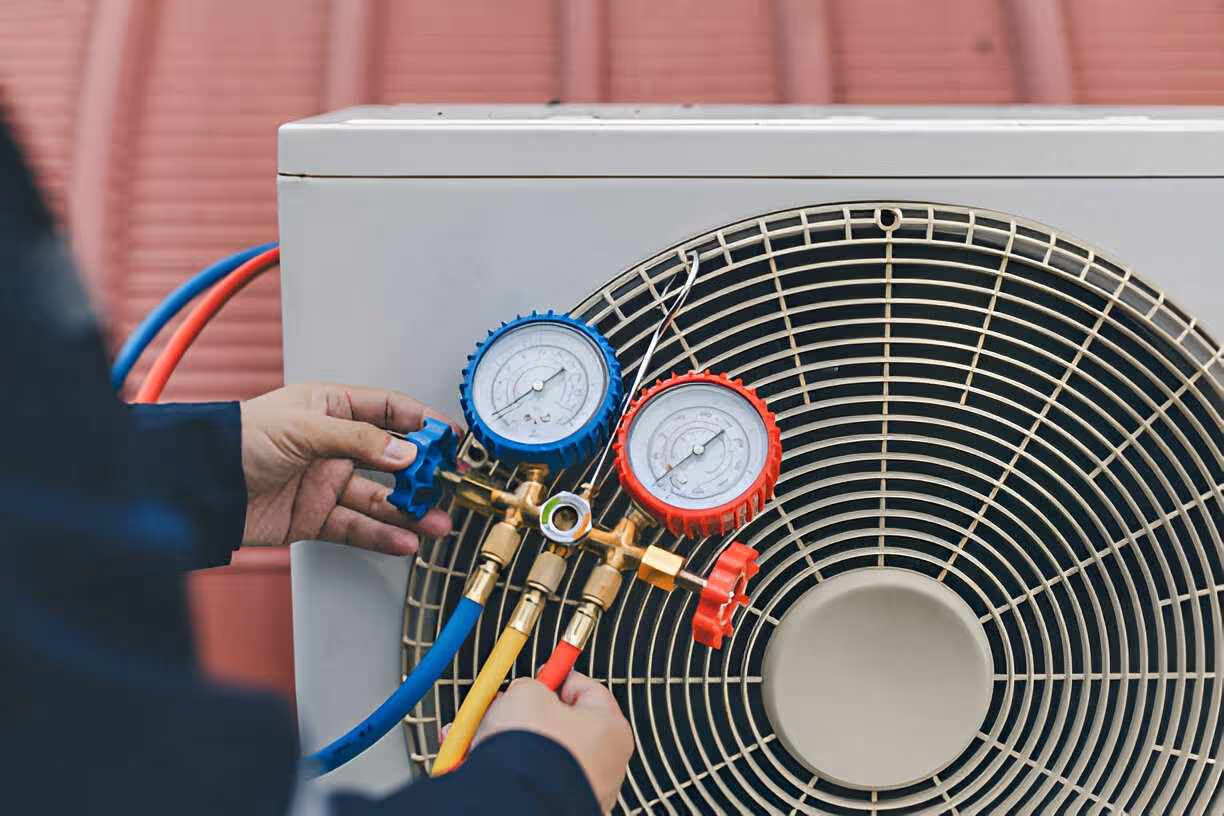AC Tune-Up in Dover, FL


Common AC problems in Dover, FL homes
Homes in Dover face specific cooling challenges because of the local climate and housing stock. Typical issues addressed during a tune-up include:
- Reduced cooling capacity caused by dirty evaporator or condenser coils from pollen, yard debris, and road dust.
- Frequent short-cycling and overheating from worn capacitors or failing start/run components due to constant heavy use.
- Clogged condensate drains and overflow risks because high humidity accelerates biological growth and debris buildup.
- Refrigerant loss or imbalance, often from slow leaks that reduce efficiency and increase compressor strain.
- Thermostat miscalibration or improper placement where sunlight or attic heat skews readings.
- Electrical wear such as loose connections or corroded contacts, worsened by seasonal storms and humidity.
What a standard AC tune-up package includes
A professional tune-up is systematic and focused on restoring reliable, efficient operation. Standard tasks typically performed are:
- Visual and operational inspection of the entire cooling system, indoor and outdoor units, and visible ductwork.
- Cleaning evaporator and condenser coils to improve heat transfer and reduce run times.
- Clearing and flushing condensate drains and pans to prevent overflows and microbial growth.
- Checking refrigerant levels and pressures to confirm the system is charged correctly; diagnosing possible leaks if levels are low.
- Testing and tightening electrical connections including capacitors, contactors, breakers, and fuses to prevent arcing or failure.
- Lubricating moving parts where applicable to reduce friction and extend fan and motor life.
- Testing thermostat operation and calibration; verifying proper temperature differentials and system response.
- Measuring operating temperatures and airflow to verify performance targets and identify duct or airflow restrictions.
- Performance optimization steps such as adjusting blower speeds, verifying expansion device performance, and recommending duct sealing or insulation improvements.
Diagnostic approach: how problems are identified
Technicians follow a logical diagnostic process to ensure the underlying cause—not just the symptom—is addressed:
- Start with a system history and symptom review (runtime, noises, comfort issues).
- Perform baseline measurements: supply/return temperatures, pressures, amps, and voltage.
- Inspect coils, filters, and drain paths visually and with tools to locate clogs or contamination.
- Test electrical components under load to reveal intermittent or marginal failures.
- Compare measured values to manufacturer specifications to identify deviations requiring repair or adjustment.
This method ensures repairs are targeted and that performance improvements are verifiable after service.
Repairs and solutions explained simply
When a tune-up reveals issues, technicians typically recommend straightforward, high-impact repairs:
- Coil cleaning reduces run time and energy use by restoring heat-exchange efficiency.
- Drain clearing and treatment prevents water damage and reduces bacterial growth that can affect indoor air quality.
- Refrigerant leak repair and recharge restores cooling capacity and prevents compressor damage caused by low charge.
- Electrical replacement or tightening (capacitors, contactors, relays) removes failure points that lead to no-start or intermittent operation.
- Airflow fixes—clean filters, adjust blower settings, or suggest duct sealing—improve comfort and reduce strain on the system.
All repairs are explained in plain language with the expected benefit and how they extend the system’s reliable service life.
Expected duration and maintenance frequency
- A comprehensive tune-up for a typical split-system AC in Dover usually takes about 60 to 90 minutes for a single system when no major repairs are required. More extensive diagnostics or multi-system properties may need additional time.
- For Dover’s warm, humid climate, an annual tune-up before the peak cooling season is recommended. Homes with heavy usage, pets, or dusty surroundings may benefit from twice-yearly checks.
Efficiency, reliability, and long-term benefits
Regular tune-ups deliver measurable returns that matter to homeowners in Dover:
- Improved energy efficiency — clean coils and correct refrigerant levels reduce run times and lower electricity use.
- Greater comfort and consistent temperatures — proper airflow and calibrated controls keep rooms at set points more reliably.
- Fewer emergency repairs — preventive replacement of worn electrical parts reduces no-cool failures on hot days.
- Extended equipment life — addressing wear items and keeping components clean delays major failures and costly replacements.
- Better indoor air quality — clean drains and coils, along with filter checks, reduce biological growth and particulate circulation.
- Preservation of manufacturer warranties — many warranties require documented annual maintenance to remain valid.
Practical tips for Dover homeowners between tune-ups
- Replace or inspect filters every 1 to 3 months depending on use, pets, and pollen seasons.
- Keep at least 2 feet of clearance around the outdoor condenser and trim back grass, vines, and debris.
- Ensure attic and duct insulation are adequate to minimize heat gain and reduce workload on the system.
- Use ceiling fans and programmable thermostat settings to lessen peak strain during extreme heat.
- Schedule maintenance in early spring to catch issues before cooling demand spikes and service schedules fill.
Routine, professional maintenance tailored to local conditions is the simplest way to protect your comfort and home investment in Dover, FL. An annual AC tune-up restores performance, prevents breakdowns during critical times, and keeps your system running more efficiently in Florida’s challenging climate.
Service Areas


